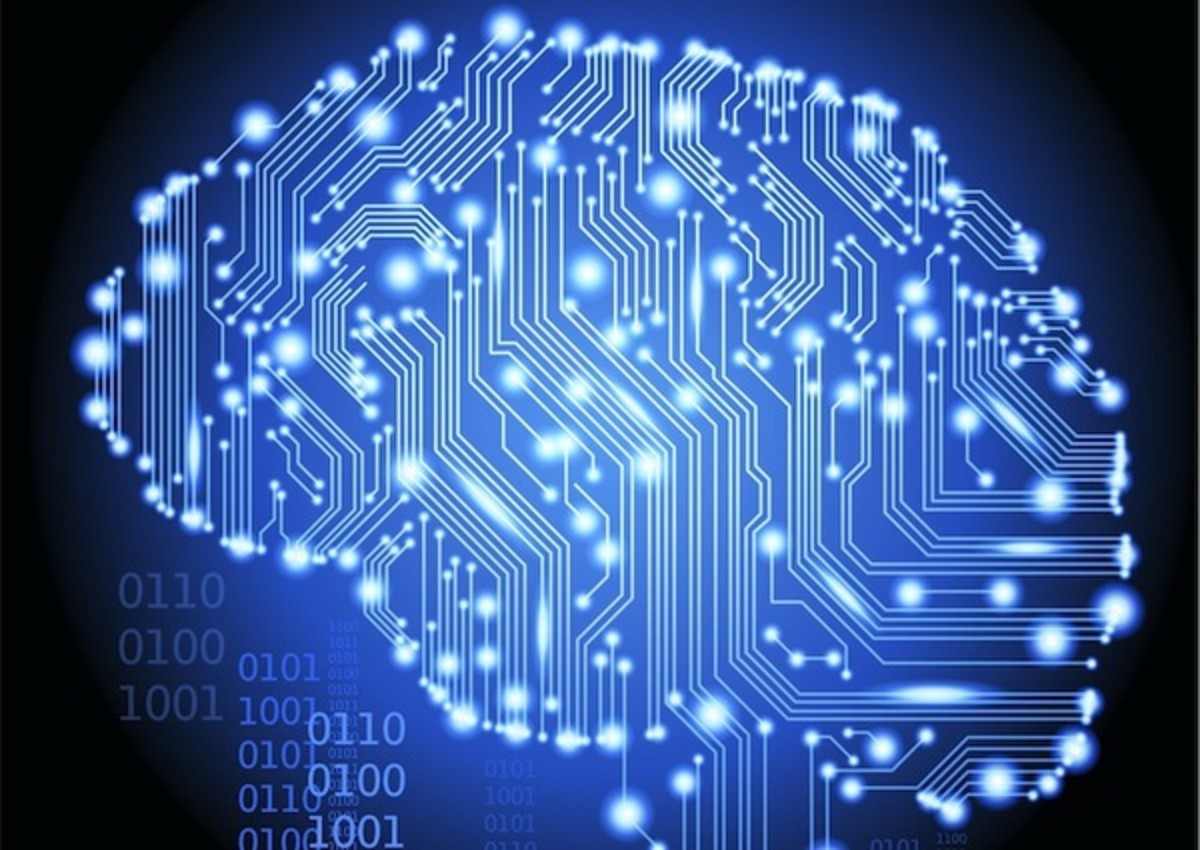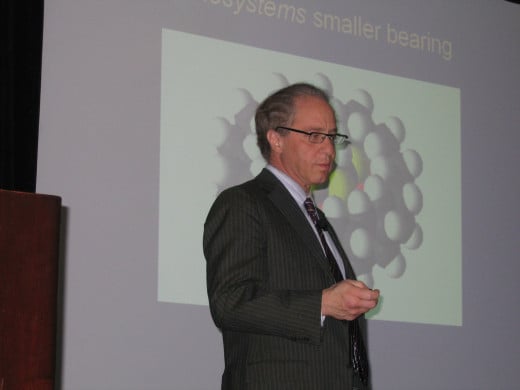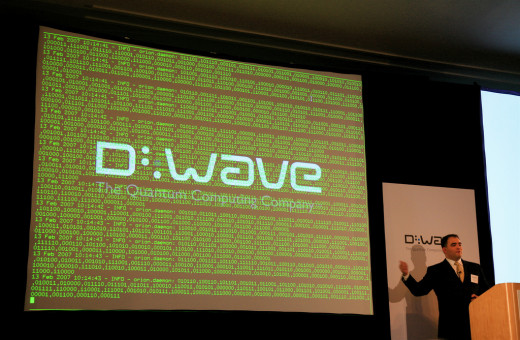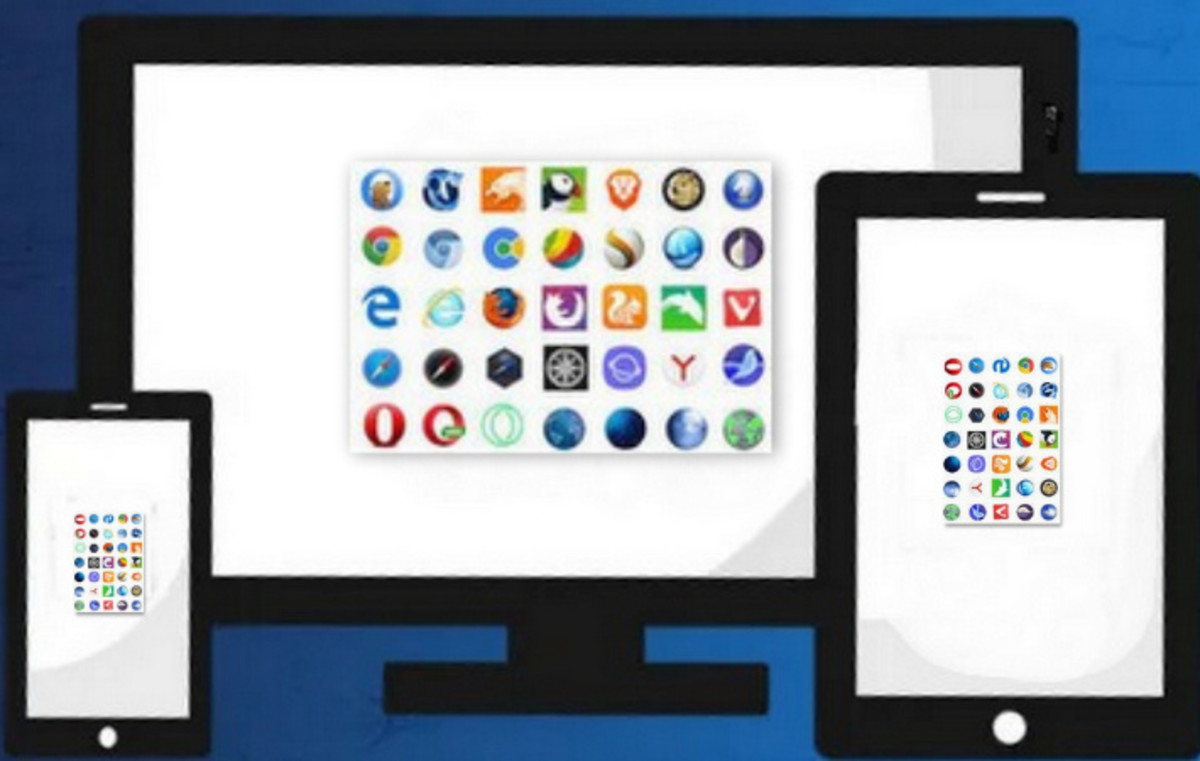Google's Artificial Intelligence Project - Is Google Building a Brain?

Google has taken some extremely bold steps to ensure its place as the company of the future. Google has positioned itself to be the leader in developing artificial intelligence. Hiring futurist and artificial intelligence expert Ray Kurzweil as director of Engineering, buying the D-Wave Two Quantum Computer, the purchase of the artificial Intelligence company Deep Mind, and their recent announcement that they will be developing their own quantum computing chips shows that Google is more interested in being a force that determines the future of the internet, computers, and even humanity's relationship to computers rather than merely concentrating on the next popular app. Google is doing no less than building a brain.

Ray Kurzweil as Director of Engineering
The hiring of Ray Kurzweil as the director of Engineering was a huge step towards Google's vision of the future. Kurzweil has authored seven books, five of which are New York Times bestsellers, including his latest two “The Singularity is Near” and “How to Create a Mind”. But he is not just a futurist and philosopher – he is also the inventor of
-
the first CCD flatbed scanner
-
the first omni-font optical character recognition
-
the first print-to-speech reading machine for the blind
-
the first text-to-speech synthesizer
-
the first music synthesizer which could recreate the grand piano and other orchestral instruments
-
the first commercially marketed large-vocabulary speech recognition system
It's easy to see how Kurzweil was drawn to Google's offer to make him Director of Engineering, since his main interest is in artificial intelligence, and especially in making a machine that can perform what he calls “deep learning”, or “hierarchical learning” . During a recent Forbes interview, Kurweil stated that no one but Google could provide him with the engineering and computing resources required to fulfill his life's dream – to create a true artificial intelligence. When asked if he intends to create a mind in silicon and software as talked about in his book “How to Create a Mind”, Kurzweil responded that in order to create a mind, you need to construct a hierarchy of knowledge that is developed through learning, and that he has ideas of how to build that hierarchy from the data that a simulated neocortex would be exposed to. He stated that “The first part of this would involve developing hierarchical methods specifically aimed at understanding natural language, extracting semantic meaning … actually developing a way to represent and model the semantic content of documents to do a better job of search and answering questions.” This, of course, fits into Google's immediate interests of improving their search engine, but the implications go way beyond that. It may be that Kurzweil and Google will actually develop the first true artificial intelligence.
Why? Because Kurzweil will have the powerful D-Wave Two Quantum computer at his disposal. Google and NASA have purchased the D-Wave Two Quantum Computer, and launched The Quantum Artificial Intelligence Lab in NASA's Ames Research Center in California.
What is a Quantum Computer?
A quantum computer operates on the strange rules of quantum physics. Information is stored on atoms, ions, photons or electrons. Instead of having binary states of 1's and 0's, qubits can be a 1, 0 or both - a state called superposition. When you combine qubits (a state known as entanglement) the number of values you can process expands exponentially with the number of qubits you entangle. This makes it possible for Quantum computers to run through huge numbers of calculations. In fact, a quantum computer with 300 qubits would be capable of running more calculations in an instant than there are atoms in the universe.

The D-Wave Two Quantum Computer
The Canadian based company D-Wave is the first commercial quantum computer company, and sold its first 128-qubit quantum computer system to Lockheed Martin in 2011. Lockheed recently upgraded that computer to the 512-qubit D-Wave Two for around $15 million, so perhaps that's what Google and NASA paid. The D-Wave Two is not considered a true quantum computer by many purists because it doesn't operate on “gate theory” but rather on quantum annealing (adiabatic quantum computing), which operates on energy states. Complex problems are framed in terms of optimal outcomes, and the answer is determined by the variables which use the least amount of energy. It's extremely fast in complex optimization problems such as “The Traveling Salesman” problem (given a list of cities and the distances between each pair of cities. what is the shortest possible route that visits each city exactly once and returns to the origin city? ) In tests last September, an independent researcher found that for these types of problems the quantum computer was 3,600 times faster than traditional supercomputers. According to a D-Wave official, the machine performed even better in Google’s tests, which involved 500 variables with different constraints. “The tougher, more complex ones had better performance,” said Colin P. Wiliams, D-Wave’s director of business development. “For most problems, it was 11,000 times faster, but in the more difficult 50 percent, it was 33,000 times faster. In the top 25 percent, it was 50,000 times faster.” These computers are ideal for the problems that Google and Kurzweil are investigating.
Two More Bold Steps - The Purchase of Deep Mind, and Building Their Own Chips
Google purchased the artificial intelligence company "Deep Mind" back in January, 2014. The acquisition will help them greatly in developing better searches, video recognition, security and social applications, but it also sets them on the path to developing real artificial intelligence.
In addition to sharing the D-Wave quantum computer with NASA, Google has recently announced that it will be designing and building its own quantum computer chips. They will be absorbing UC Santa Barbara's quantum computing group. This acquisition places Google as one ot the largest commercial companies developing quantum computer chips, with IBM being the first
Google Explains Quantum Computing
Kurzweil's View of the Future
Kurzweil has predicted that artificial intelligence will equal human intelligence by 2029. He also believes that an event called “The Singularity” will happen in 2045. The Singularity is the point at which artificial superintelligence emerges that is beyond mankind's understanding, thus making it impossible to predict or control the outcome of such intelligence. Kurzweil believes that rather than allowing technology and science to veer out of control, man will merge with machines and use technology and science to enhance themselves, becoming something more than human, or transhuman. Perhaps his new position at Google will allow him to be the one to actually make these predictions a reality, and the prophecy will be self-fulfilling.
Kurzweil Speaks of Achieving Immortality by 2045
I've Seen the Future
Sometimes momentous events happen without anyone paying attention. The earth doesn't quake, alarms don't go off, there is no notice that the world as you know it is about to change. That's how I feel as I conclude this article. I've seen the future, and its name is Google.
What Do You Think?
Will the development of true artificial intelligence be good for humanity?
© 2013 Margaret Perrottet






